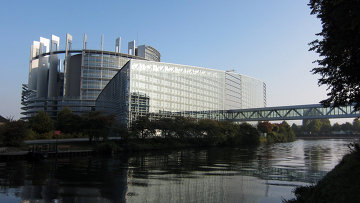MOSCOW, November 21 (RAPSI) – The Group of States Against Corruption (GRECO) issued on Monday a report saying that Russia has taken measures to implement its recommendations concerning corruption-related incriminations and transparency of party funding.
Russia has implemented satisfactorily or dealt in a satisfactory manner with eleven of twenty-one recommendations which were addressed to it by GRECO in 2012, according to the report.
The rest ten recommendations have been partially implemented.
GRECO positively evaluated the introduction of the concept of third party beneficiaries in the bribery provisions and welcomed the submission to the Russian Parliament of a new draft legislation aimed at strengthening liability for corruption.
As to the transparency of political funding, GRECO points out the enactment of several draft laws. In particular, the fact that the Russia’s Federal Law “On Political Parties” has been amended to increase transparency of party funding from different sources, for instance membership fees and loans, as well as that the requirement of independent audit of party accounts and assignment of the supervision of party financing mainly to election commissions have been introduced, is seen as a welcomed development, the document reads.
Moreover, the report hails the steps Russia has taken to review the Federal Law “On Basic Guarantees of Electoral Rights and the Right to Participate in Referendums of Citizens of the Russian Federation” and the special election laws to remove duplications and inconsistencies.
Specified offences in the field of general party funding have been also introduced in the code of Administrative Offences. Parties have been made subject to administrative sanctions envisaging a significant increase in the fines available for violation of campaign financing rules and extended administrative liability of a wider range of party officials.
Finally, several practical measures have been taken, including amendments by the Central Election commission to the forms for party accounts and annulment of numerous no longer relevant normative acts.
At the same time, GRECO says, the recent reform of the corruption-related provisions of the Russia’s Penal Code is “a significant step backwards compared to the previous draft legislation.”
GRECO says that the amendments to the provisions on public sector bribery no longer include all the various forms of corrupt behavior, whereas failing to explicitly cover any undue advantages, including non-material ones. The same is true for the draft provisions on private sector bribery restricted to persons performing managerial functions, contrary to the requirements of the Criminal Law Convention on Corruption. Moreover, the amendments do not introduce specific provisions on trading in influence, the report reads.
GRECO also voices its concern that its recommendation to ensure unambiguous criminalization of bribery of domestic and foreign arbitrators, proceed swiftly with the ratification of the Additional Protocol to the Criminal Law Convention on Corruption, and extend the limitation period for bribery offences have been only partially implemented.
Russia ratified the Council of Europe Criminal Law Convention on Corruption in July 2006. It was enacted in February 2007. Since 2008 Russia has adopted a wide range of anti-corruption measures that were primarily aimed at aligning Russian legislation with international anti-corruption standards.



